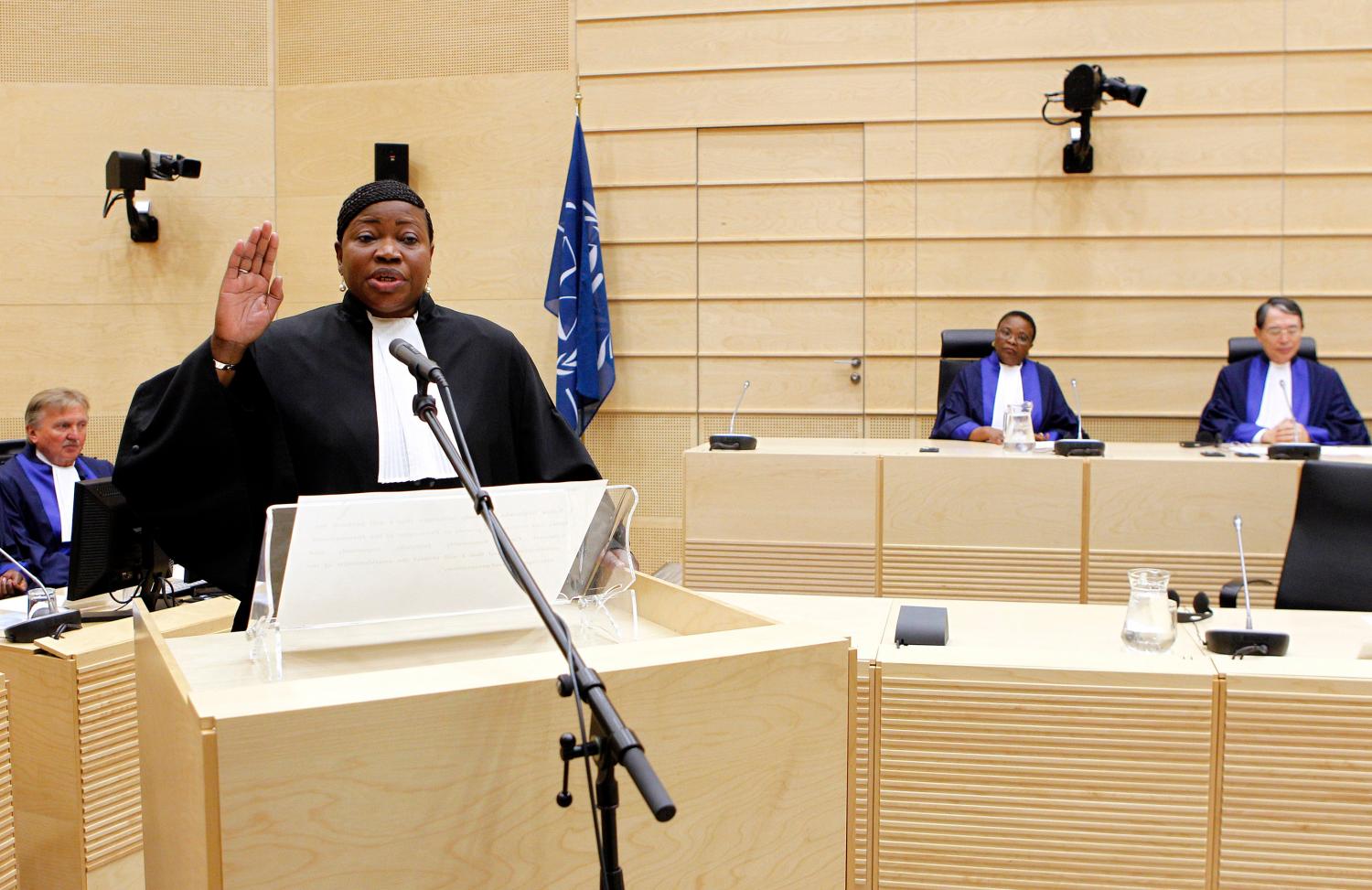Displacement is intrinsically linked to the abuses transitional justice processes seek to address. Crimes such as torture, rape and the killing of friends and family are almost invariably followed by survivors’ flight, whether for weeks, years or generations. In some cases, forcing people to flee their homes represents a grave violation in its own right. And yet, refugees and internally displaced persons (IDPs) have often been relegated to the sidelines in efforts to deal with past injustices through measures such as trials, truth commissions, and restitution and compensation programs. Scores have been denied the opportunity to participate in transitional justice mechanisms, while others have found these processes to be out of step with their most pressing concerns. In recent years, however, transitional justice processes have increasingly opened up to the involvement of displaced persons, and have taken steps to address the crime of forced migration and the injustices at its root. From restitution efforts in the former Yugoslavia and Tajikistan to truth commissions in Timor-Leste and trials in the Hague, it is becoming increasingly clear that transitional justice can make a modest, contingent, but nonetheless significant contribution to upholding accountability and providing redress for forced migration and advancing solutions to the displacement of refugees and IDPs.
Researchers are in turn devoting more attention to the links between transitional justice and displacement. A multi-year collaboration between the Brookings-LSE Project on Internal Displacement and the International Center for Transitional Justice brought together researchers and practitioners from around the world to explore the ways in which particular transitional justice measures have responded to displacement, and insights from experiences in countries including Guatemala, Colombia, Peru, Bosnia, Kosovo, Turkey, Iraq, Liberia and Timor-Leste. The results include a new volume entitled Transitional Justice and Displacement, a series of case studies, and a report highlighting the policy recommendations arising from this work. In June and July 2012, members of the Brookings-ICTJ research team shared this work at events in London, Oxford, Geneva, Bern, New York and Washington, DC. Related research has explored issues such as reconciliation in communities affected by large-scale displacement, while organizations such as the Refugee Law Project at Makarere University in Kampala are playing a leading role in investigating and advocating for the effective incorporation of displacement into transitional justice processes in Africa.
In Bern, the project was presented during a KOFF Dealing with the Past Roundtable at swisspeace. Practitioners as well as academics and two discussants working in the fields of transitional justice and migration participated. In the discussions with Megan Bradley (Brookings Institution) and Roger Duthie (ICTJ), participants emphasized the need for long term approaches in both fields, the preventive aspects of transitional justice and restitution for displacement, and the role of humanitarian actors working with displaced persons in documenting and collecting relevant information for a transitional justice process.
Through these and other related initiatives, a significant body of research is building that brings into focus the complex conceptual dimensions raised by displacement and transitional justice, while also providing guidance to policymakers and practitioners. But research and practice at the intersection of these fields is still in the early stages – much remains to be done to deepen understanding of these issues, and to translate the results of this evolving research agenda into practice. What are some of the central issues that will need to be tackled by researchers and practitioners interested in the interface of these spheres?
Past research suggests that in certain instances, transitional justice measures can support durable solutions to displacement. Detailed monitoring and comparative analysis of the impacts of transitional justice interventions on the pursuit of durable solutions is needed to more rigorously test this claim and identify the conditions under which these processes are mutually reinforcing. The role of diaspora communities in transitional justice processes and the potential for transnational transitional justice processes to strengthen relations between diaspora communities and states of origin also merits further examination. The tensions between amnesties, impunity, ending conflict and resolving displacement have been brought into sharp relief by the controversial involvement of the International Criminal Court (ICC) in Uganda, but these dynamics are also critical elsewhere in the Great Lakes region and further afield. Further research is needed on the ways in which criminal prosecutions and other accountability mechanisms shape the security and stability of post-conflict communities, including in the context of the demobilization and return of combatants, as well as the return of displaced civilians. While transitional justice programs and research on accountability for injustice have typically focused on the national level, displacement and related peacebuilding processes are often regional in nature.[1] Research that adopts a regional perspective may shed a brighter light on the nature of these challenges, and suggest innovative new approaches to addressing them.
In many countries affected by widespread conflict and displacement, formal justice institutions are notoriously weak and lack citizens’ confidence. In lieu of formal institutions, a wide range of “customary” or “traditional” approaches have been used to respond to injustices and reintegrate offenders. Customary approaches to dealing with past wrongs have been the subject of extensive study in recent years, but this research has rarely considered the significance and efficacy of these institutions for the displaced, who may have become alienated from the traditional systems and social networks on which they are based.[2] Responding to this gap in the literature would represent a significant practical and scholarly contribution. Other thematic challenges that merit further analysis include accountability for refoulement as a human rights violation, and the claims host states may have for redress, an issue that has emerged in debates on the resolution of the longstanding Palestinian refugee situation and the broader Israeli-Palestinian conflict, as well as in discussions between Colombia and neighboring states sheltering those who fled the country’s violence.[3] As climate change continues, growing numbers are expected to be displaced by increasingly severe natural disasters such as floods and droughts. These disasters will likely give rise to a range of losses and wrongs meriting remedy through tools such as compensation, or through new approaches such as the provision of resettlement as a form of redress. Determining responsibility for providing such remedies will undoubtedly be a matter of heated debate in which researchers from a variety of disciplines may play important roles, suggesting creative and compelling approaches to allocating responsibility for displacement linked to climate change, and remedying the wrongs it will entail for those whose homes become uninhabitable.
At the same time as new thematic issues such as these are coming to light, transitional justice processes are beginning to unfold in a host of new countries, including those emerging from the upheaval of the Arab Spring. In countries such as Libya, displacement linked to the policies and overthrow of the former regime will need to be addressed, in part through carefully considered, well-calibrated transitional justice initiatives including truth-telling, restitution and compensation. Ideally, the results of recent research on the intersection of displacement and transitional justice may inform these efforts, which will themselves be of significant interest to researchers dedicated to deepening understanding of the role of transitional justice in contexts characterized by large-scale forced migration. As this research agenda progresses, it will be essential to bear in mind the diversity of displaced populations and their justice concerns. For example, in Burma/Myanmar, which appears to be moving towards a fragile transition, multiple groups were uprooted at different times and for different reasons, including pro-democracy activists exiled to the Thai-Burma border; those forced to flee by armed conflict between the state and ethnic groups; and those displaced by infrastructure projects and rampant resource exploitation. The experiences, identities, claims and concerns of these groups and the individuals within them are remarkably heterogeneous; as advocates and researchers consider and monitor the ways in which transitional justice processes may address displacement in Burma/Myanmar and elsewhere, remaining attuned to the diversity amongst the displaced will be critical.[4]
Advancing the transitional justice and displacement research agenda is not simply a matter of what researchers address, but how they undertake this work. To date, research at the crossroads of these fields has been characterized by remarkable collaboration across regions and disciplines, and between researchers and practitioners. As this agenda moves forward, it will be enriched by a continued commitment to this approach, and to the increased engagement of Southern scholars and critical voices in the debate, which can help ensure that the political interests and power dynamics that shape transitional justice processes are neither underestimated nor overlooked. Ultimately, the challenge is to ensure that the conceptual and empirical insights resulting from the continued evolution of this research agenda translate into the provision in practice of an increased measure of justice for the survivors of conflict and abuse, including those forced to flee their homes.
[1] See James Milner, (2009) “Refugees and the Regional Dynamics of Peacebuilding,” Refugee Studies Quarterly 28(1): 13-30.
[2] An important exception is Barbara McCallin, (2012) “Restitution and Legal Pluralism in Contexts of Displacement”, see https://www.brookings.edu/about/projects/idp/transitional-justice/tj-case-studies.
[3] See David Cantor, (2011) “Restitution, compensation, satisfaction: Transnational reparations and Colombia’s Victims’ Law,” UNHCR New Issues in Refugee Research, Research Paper No. 215.
[4] I am grateful to Kirsten McConnachie for her insights on this issue.
The Brookings Institution is committed to quality, independence, and impact.
We are supported by a diverse array of funders. In line with our values and policies, each Brookings publication represents the sole views of its author(s).




